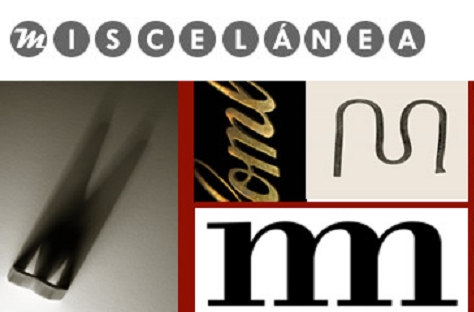Dramatising the Conflicts of Nation and the Body: Displacement in Charlotte and Emily Brontë's Poetry of ‘Home’ and ‘Exile’ Dualities
DOI:
https://doi.org/10.26754/ojs_misc/mj.20089722Palabras clave:
Cuerpo, Hogar, Nación, Desplazamiento, ExilioResumen
Para Gregory Orr, el mejor modo de responder al caracter caóticamente imprevisible de nuestro ser es a través de la lírica personal, puesto que “dramatiza la experiencia interna y externa”, “aferrándose al ser personificado”. El ser en la lírica personal de las hermanas Bronté (Charlotte y Emily) esta o bien “en casa” o “fuera”, enfrentándose a una división o fractura interna o externa, y en busca de una posible identidad (personal y nacional) o una localización escogida. Los conflictos de nación (ya sean presentados de un modo real o ficcional) se reflejan simultáneamente en los conflictos del cuerpo mismo, y la palabra “hogar” —una metáfora tanto para “lugar” como para “ser”— asume matices diferentes pero relacionados (desde el hogar familiar y la patria exaltada a la mente del poeta, la naturaleza o el seno de Dios). Hay un intento evasivo de superar las coacciones sociales y políticas que crean tanto confinamiento como desplazamiento, pero bien hayan escogido quedarse en casa o bien se hayan visto obligadas a marcharse, las Bronté siguen siendo ‘exiliadas’. En última instancia, para estas poetas, sera el desplazamiento exiliado lo que actuará como una ‘espuela a la creatividad’ y definirá la autoria.
Descargas
Referencias
ANDERSON, Benedict. 1983. Imagined Communities: Reflections on the Origin and Spread of Nationalism. London: Verso.
BROOKE-ROSE, Christine. 1998. “Exsul”. In Suleiman, S. R. (ed.). Exile and Creativity. Signposts, Travelers, Outsiders, Backward Glances. Durham and London: Duke U.P.: 9-24.
CARLYLE, Thomas. (1838) 1896-1901. Critical and Miscellaneous Essays, Centenary Edition, Vol. 3. New York: H. D. Traill.
CHITHAM, Edward. (ed.). 1979. The Poems of Anne Brontë: A New Text and Commentary. London and Basingstoke: Macmillan.
DESSEWFFY, Tibor. 1998. “Strangerhood without Boundaries: An Essay in the Sociology of Knowledge”. In Suleiman, S. R. (ed.). Exile and Creativity. Signposts, Travelers, Outsiders, Backward Glances. Durham and London: Duke U.P.: 353-370.
GLEN, Heather. 2002. Charlotte Brontë. The Imagination in History. Oxford: Oxford U.P.
GREEN, Martin. 1979. Dreams of Adventure, Deeds of Empire. New York: Basic Books.
HOUGHTON, Walter E. (1957) 1985. The Victorian Frame of Mind, 1830-1870. New Haven and London: Yale U.P.
KAPLAN, Caren. 1996. Questions of Travel. Postmodern Discourses of Displacement. Durham and London: Duke U.P.
LEVIN, Harry. 1966. Refractions: Essays in Comparative Literature. New York: Oxford U.P.
ORR, Gregory. 2002. Poetry as Survival. Athens and London: The University of Georgia Press.
PAVEL, Thomas. 1998. “Exile as Romance and as Tragedy”. In Suleiman, S. R. (ed.). Exile and Creativity. Signposts, Travelers, Outsiders, Backward Glances. Durham and London: Duke U.P.: 25-36.
PLASA., Carl. 2004. Critical Issues. Charlotte Brontë. Basingstoke and New York: Palgrave Macmillan.
ROPER, Derek and Chitham, Edward. (eds.). 1995. The Poems of Emily Brontë. Oxford: Clarendon Press.
SAID, Edward W. 1984. “Reflections on Exile.” Granta, 13: 159-172.
SEIDEL, Michael. 1986. Exile and Narrative Imagination, New Haven: Yale U.P.
SULEIMAN, Susan Rubin. (ed.). 1998. Exile and Creativity. Signposts, Travelers, Outsiders, Backward Glances. Durham and London: Duke U.P.
WINNIFRITH, Tom. (ed.). 1984. The Poems of Charlotte Brontë. A New Annotated and Enlarged Edition of Shakespeare Head Brontë. Oxford and New York: Basil Blackwell.
WOLFF, Janet et al. 1984. Geography and Gender: An Introduction to Feminist Geography. London: Hutchinson.
Descargas
Publicado
Número
Sección
Licencia

Esta obra está bajo una licencia internacional Creative Commons Atribución-NoComercial 4.0.


